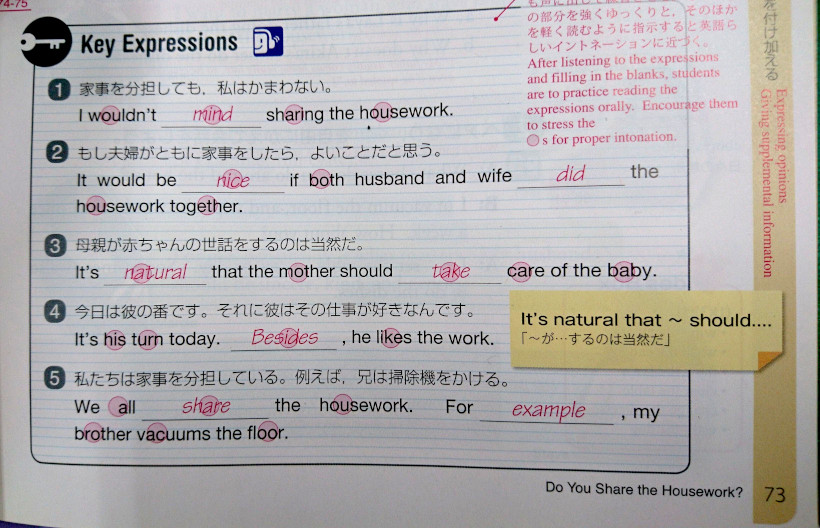A textbook case of sexism?
In my current job, I work a lot with an English textbook called Sailing. Overall, it’s a decent resource for the conversation classes I teach. However, a couple of passages in it consistently make me cringe.
It’s natural that…
First up is (3) in the picture below.

If that’s a little hard to make out, it reads: It’s natural that the mother should take care of the baby.
Wut.
For context, this phrase occurs in a chapter on gender equality. Many of the following activities centre around agreeing/disagreeing with controversial opinions. But geez. In what way is this phrase a Key Expression? Who, exactly, would consider it key? All the budding conservative patriarchs in my class?
Although I get that the point is to teach the phrase It’s natural that… (dangerous enough on its own), there’s no need to use this as the example.
Perhaps the worst thing about this phrase is that it occurs in a section of the textbook intended to be read aloud by everyone in the class. I shiver at the thought.
What do you want to be in the future?
In many ways the next example grinds my gears even more. It appears in the script for a listening exercise. To set the scene, Kenta and Sophie are discussing future jobs.

I know you mean well, Kenta. But Sophie really doesn’t need your patronizing approval of her dream. Maybe you thought, Girls, be ambitious, right? was a harmless, cutesy, girlpower slogan. It isn’t. Not coming from a dude. Since the conversation ends there, I’m guessing Sophie’s practising one of her diplomatic silences.
Seriously Kenta, if you’re genuinely interested in equality, not making direct references to a person’s gender in non-relevant contexts might be a nice start.
Fortunately, these are the only two real gripes I have with the book content-wise. Even so, I do wonder how this stuff gets through the editorial process and into government-approved textbooks. Fingers crossed the next edition will be better.